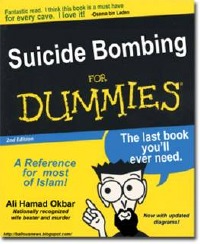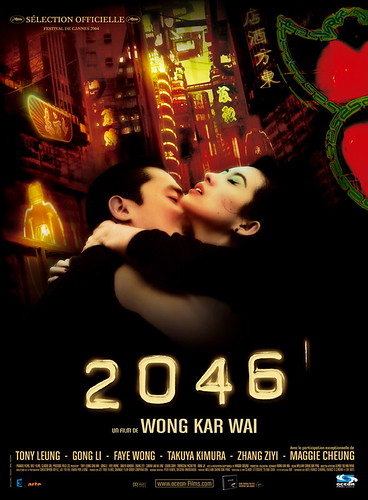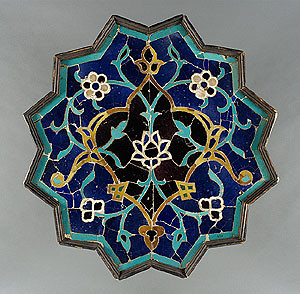And don't try to dig what we all s-s-say (Talkin' 'bout my generation)
I'm not trying to cause a big s-s-sensation (Talkin' 'bout my generation)
I'm just talkin' 'bout my g-g-g-generation (Talkin' 'bout my generation)
Gerard Van der Leun at American Digest has a few well-seasoned words for the stuffed-owl specimens of 1960s radical chic who occupy so many posts in academia, news organizations, and the entertainment industry:
Nostalgie pour la défaite [nostalgia for defeat] is that state of the soul when an American, who either came of age in the Vietnam era, or who was taught and mentored by a leftist or liberal of that vintage, yearns for the defeat of America. This state is then seen as confirmation that his or her world view and social milieu is the right view and right milieu. To operate otherwise would throw not only all the professional views and actions of the last thirty years into question, but the entire structure of the afflicted personality as well.
An America that is ascendant rather than retiring, an America whose policies are aggressive and not apologetic, is an America they are simply unequipped to inhabit or report on. They have, quite frankly, an empty tool box when it comes to this task and no raw materials with which to build.
These are the people I used to hang with, back in Berkeley in the late '60s, and have encountered in great numbers ever since while working in advertising, radio, and publishing.
There were good qualities among the generation that came of age in the '60s … at the time. Some of the rock music was extraordinary, a cross-breeding between real songs and electric instruments, and launched into orbit by psychedelics — far more interesting and creative than the endlessly repetitive rhythm tracks and dog-bark "lyrics" of hip-hop and dance pop today.
There were casualties from drug abuse, but many young people of the '60s had a realistic understanding of the benefits and dangers of mind-altering chemicals. They were certainly less naive about them than anyone involved in today's full-employment program for bureaucrats known as the war on drugs. It's easy to make fun of hippie styles (the fashions of any previous era always look silly to later cohorts), but at least the counterculture had a healthy distrust of technology as the solution to every problem.
I mention all this only to show that I retain empathy with the spirit of the '60s; I was there, involved in the magic and the revolutionary fantasies. So I'm sad to have to acknowledge that the United States will be better off when my demographic is gone.
Some kind of generational Gresham's Law seems to ensure that what is bad in any age group eventually drives the good out of circulation as that group grows older. Sixties hipness has soured into routine anti-Americanism, political correctness, and a patronizing favoritism for minorities. (Talkin' 'bout my de-generation … .) Today's yuppified Flower Children remind me of what Napoleon's minister, Talleyrand, said of the French royal family, the Bourbons: "They never forgot anything, and they never learned anything." Everything today's '60s-spawned Liberal Establishment members "know" is what they "knew" in 1969.
Their professed openness to new experience has devolved, down the years, into a herd instinct. They work in professions where everyone they meet reinforces the views they formed in the good old shut-it-down days. Any idea that won't fit on a picket sign is too big for their cerebral neuron count. Bill Clinton was their embodiment as a president: each time he opened his lips, a bumper sticker emerged ("Affirmative action — mend it, don't end it").
They were right to question the ill-conceived war in Vietnam, wrong to draw the conclusion from it that America is a warfare state always looking for other countries to victimize. They can't admit that the American people individually and collectively make mistakes from time to time; to them, evil lurks behind our every move.
What was originally a concern for the world's poor and oppressed became a fashion statement, then an ideology, then a rationalization for psychopaths like "Che" Guevara or Palestinian explodey-dopes.
Whatever the problem, their analysis is the same: "It's the fault of America /capitalism/racism/ homophobia /sexism/Islamophobia."
Listen up. I'm talking to you, my generation, you whom I dropped out of society with, protested with, shared Bob Dylan's music with.
You so-called professors who hide behind your tenure so you can submit your students to your pathetic stuck-record agit-prop: Sod you.
You so-called journalists who trip over yourselves in your eagerness to publish any story you think will make the United States and, above all, its president look bad, but turn a blind eye to Islamic terrorism, promised and present: Sod you.
You entertainers, who think it's down to you to use the immense resources of your industry to show your country, the source of your freedom of expression and your wealth, that America is oppressive and every anti-American regime on earth can do no wrong: Sod you.
You are the perfect Marxist Lite paradox, a mass-produced elite, smugly enforcing your prejudices and simple-minded platitudes. It makes me sick that you occupy the commanding heights of our culture. The only forces that will change you are infirmity and mortality.
Why don't you all f-fade away?














